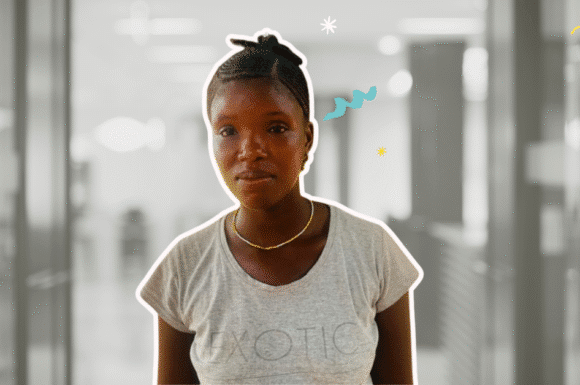In the quiet, remote village of Makwie an outreach community to Gbendembu in Sierra Leone 18-year-old Yapo Kanu lived in silence and shame because she had never gone to school. For Yapo, the world of education was foreign and intimidating. She often avoided conversations with her peers who were enrolled in school, feeling inadequate and excluded. The fear of judgment and the deep sense of ignorance made her withdraw from community interactions and opportunities. Yapo’s story is not unique. Across rural Sierra Leone, thousands of adolescent girls face similar circumstances excluded from education due to poverty, early marriage, gender-based discrimination or simply the absence of nearby schools. The effects are far-reaching illiteracy, low self esteem, limited livelihood opportunities and an increased risk of exploitation and abuse. This educational exclusion perpetuates cycles of poverty and inequality, stalling national efforts to achieve inclusive development, gender equality and improved human capital.
Restless Development introduced the Girls’ Education Power Up Project in Makwie, a marginalised outreach community connected to Gbendembu in northern Sierra Leone. The project aimed to improve the enrollment, retention and transition of out-of-school adolescent girls by providing them with access to safe spaces, mentorship and non-formal education. When the program was first introduced, Yapo Kanu was hesitant to participate. Having never set foot in a classroom, she felt ashamed and intimidated even by the sight of books. However, with encouragement from trained community mentors and outreach staff, Yapo was reassured that the program was designed for girls just like her, who had been excluded from formal education.

Through weekly sessions held at the community safe space, Yapo slowly began to engage. The sessions were facilitated by trained female mentors, focused on life skills, basic literacy and numeracy, sexual and reproductive health education and decision-making skills. These safe spaces became more than just learning centers, they served as empowering environments where girls could speak freely, ask questions and build their self-confidence. Over a period of six months, Yapo transitioned from being withdrawn and voiceless to an active participant. She can now write her name, count numbers and confidently interact with her peers. She can now count from 1 to 100 and is able to make informed decisions. The Girls’ Education Power Up Project generated significant and tangible changes in the lives of marginalised out-of-school adolescent girls in Makwie, exemplified by the transformation of Yapo Kanu. Initially hesitant and ashamed due to her lack of formal education, Yapo’s participation in the program marked a profound shift in her attitude, confidence and capacity. Through consistent mentorship and engagement in safe space sessions, Yapo moved from being withdrawn and voiceless to becoming an active, confident participant in her community.
Following support from the program, Yapo now actively engages in community conversations and peer learning, encouraging other girls who are still hesitant to join the safe space sessions. Yapo’s story demonstrates that with the right support, even the most excluded girls can reclaim their confidence and agency. Her transformation not only improved her own life but also contributed to shifting community perceptions about the value of educating girls. The safe spaces have proven to be effective hubs for learning and empowerment. It is crucial to maintain these spaces beyond the project timeline, possibly by integrating them into existing community structures or through partnerships with local education authorities and community-based organisations. Ongoing support, refresher training and recognition of these mentors can sustain their motivation and ability to mentor more girls over time.
